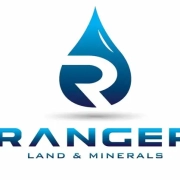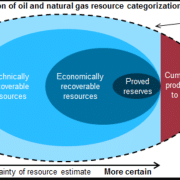How to obtain mineral rights on your property
Mineral rights are a valuable and often overlooked asset, granting ownership of subsurface minerals like oil, natural gas, metals, and minerals found beneath your property. Acquiring mineral rights allows you to tap into potential revenue streams from the extraction and sale of these valuable resources. In this comprehensive guide, we will explore the steps and considerations for obtaining mineral rights on your property. Whether you are a landowner looking to capitalize on your assets or a prospective buyer seeking opportunities in the natural resources sector, understanding the process of obtaining mineral rights is essential.
Understanding Mineral Rights
Mineral rights, also known as subsurface rights, are property rights that provide ownership over valuable subsurface resources. These resources include oil, natural gas, coal, metals, and various minerals. Mineral rights are often separated from surface rights, meaning one party owns the surface property, while another party owns the minerals beneath it.
Assessing Your Property’s Mineral Potential
Before pursuing or how to obtain mineral rights, it’s essential to assess your property’s mineral potential:
- Geological Surveys: Conduct geological surveys to determine the presence of valuable minerals and resources beneath your property.
- Resource Maps: Consult resource maps and geological data to identify known mineral deposits in your region.
- Professional Consultation: Engage with geological experts and mineral appraisers who can provide insights into your property’s potential.
Legal Ownership and Verification
Determine the legal ownership of mineral rights on your property:
- Title Search: Conduct a comprehensive title search to verify the ownership of mineral rights. This search will identify any encumbrances, existing leases, or third-party claims.
- Chain of Title: Review the chain of title to establish a clear history of ownership and transfers of mineral rights.
- Land Records: Research local land records and land registries for any documentation related to mineral rights.
Negotiating with Mineral Rights Holders
If you discover that mineral rights are held by third parties, consider negotiation:
- Locate Holders: Identify the current mineral rights holders and contact them to discuss potential negotiations.
- Consult Legal Experts: Seek legal advice to navigate negotiations, draft agreements, and ensure a fair deal.
- Negotiation Terms: Determine the terms of the agreement, including royalty rates, lease duration, and compensation.
Lease Agreements vs. Selling Mineral Rights
When obtaining mineral rights, you have the option to lease or sell them:
- Lease Agreements: Leasing mineral rights allows you to maintain ownership while earning royalties from resource extraction. Leases typically have a set duration.
- Selling Mineral Rights: Selling mineral rights is a one-time transaction that transfers ownership to the buyer. This option provides an immediate lump sum payment.
The decision between leasing and selling depends on your financial goals, long-term plans, and risk tolerance.
Legal and Financial Considerations
When obtaining mineral rights, consider the following legal and financial aspects:
- Contracts: Draft clear and legally binding contracts that define the terms of the mineral rights transaction.
- Due Diligence: Ensure thorough due diligence to prevent disputes, future conflicts, or any legal issues that may arise.
- Tax Implications: Consult tax professionals to understand the tax consequences of mineral rights transactions, which may include capital gains tax.
The Role of Professional Appraisals
Professional appraisals are invaluable for determining the value of mineral rights:
- Certified Appraisers: Engage certified mineral rights appraisers to conduct a thorough assessment of your property’s subsurface assets.
- Resource Valuation: Appraisers consider factors like geological data, market prices, reserve estimates, and operational costs when assessing the value.
Tax Implications
The tax implications of mineral rights transactions are significant. Consider the following:
- Capital Gains Tax: Depending on your jurisdiction and the nature of the transaction, capital gains tax may apply.
- Tax Planning: Consult tax professionals to develop tax-efficient strategies for mineral rights transactions.
The Future of Mineral Rights
The future of mineral rights is influenced by evolving market conditions, technological advancements, and environmental concerns. As the world’s energy landscape shifts toward cleaner and more sustainable sources, the value and demand for mineral rights may undergo changes.
- Renewable Energy: The growing emphasis on renewable energy resources may reduce the demand for traditional fossil fuels, impacting the market for certain mineral rights.
- Technological Advancements: Innovations in resource extraction technologies may affect the profitability and accessibility of minerals.
Obtaining mineral rights on your property is a strategic financial decision that requires careful consideration and thorough research. By understanding the geological potential, legal ownership, and the process of negotiation, you can unlock the value of subsurface minerals and potentially generate revenue streams.
Whether you choose to lease or sell mineral rights, it’s essential to consult legal and financial experts to ensure that transactions are legally sound and financially advantageous. As the natural resources sector continues to evolve, mineral rights will remain a valuable and potentially lucrative asset for landowners and investors alike.
If you have further questions related to the “obtaining mineral rights” topic, feel free to reach out to us here.












Leave a Reply
Want to join the discussion?Feel free to contribute!